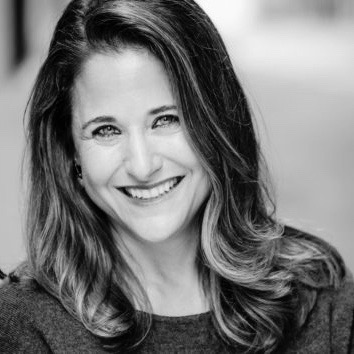 Coronaviruses research, conceptual illustration. Vials of blood in a centrifuge being tested for coronavirus infection.
Coronaviruses research, conceptual illustration. Vials of blood in a centrifuge being tested for coronavirus infection. After my mother was diagnosed with terminal brain cancer, I had to set aside everything. I turned down invitations. I reassessed priorities. I simplified. I had to shut down my external world because my internal world became so activated. Every day during that time, I found myself ruminating on fears that I had largely avoided. Although many other people had faced the same anxieties and unknowns, I felt alone in my experience.
My mother’s dying paused my life, just as COVID-19 has paused the world’s.
This experience is different, though. In this moment, we are all biting our nails. We are not alone — we are all asking the same questions and contemplating the same future. It’s like we are all in the waiting room together, counting the minutes before the doctor gives us the diagnosis.
This past week, our collective instinct was to go on metaphorical WebMD in search of an explanation. Regardless of the keywords we searched, the future still remained ambiguous. And it only heightened the collective panic.
As a rabbi, I often look to history in search for answers during trying times. I have found comfort in the wisdom of the many Jewish thinkers who have come before me. Amid the COVID-19 crisis, I’ve found solace in the writings of Israel Salanter, a 19th-century rabbi who founded the Mussar movement of Judaism. The core tenant the Mussar movement holds is that when you are suffering, you reach out in service of others. When we are sitting in that proverbial waiting room, we must keep in mind those who are seated beside us. Rather than burying ourselves in the latest issue of People magazine, we should offer our shoulder for their head to rest on, and our hand for them to hold.
With Salanter’s wisdom in mind, my instinct during this crisis has been to call everyone in my contact list. Yet, as I was frantically dialing, my teenage daughter suggested that I should instead reach out to the friends and family members who were particularly in need during this pandemic. With many of us finding more time while we stay home, now is the moment to take pause and evaluate who most needs our care. Maybe it’s a cousin who you always leave “on read,” as my daughter would say. Maybe it’s the friend whose visit you keep rescheduling. Maybe it’s the estranged sibling that you left on bad terms. Free from the distractions and rush of everyday life, we can use some of this unexpected down time to consider whose lives could truly benefit from our outreach and care. We’ll derive just as much benefit as the recipient.
My mother knew this wisdom instinctively. When she was undergoing chemotherapy, she never let me sit beside her. Instead, she forced me to visit the other patients in the room who were sitting alone in their cubicles. I resented her instruction, but I listened. How could I disobey her dying wishes? I made the rounds. And when I returned, to my surprise, my pain was eased and so was hers.
Through all the twists and turns of these past few weeks, I’ve continued to ponder the lessons that my mother and daughter have taught me through their actions, and on the ethics that Salanter has illuminated through his writings. An unforeseen confluence of figures, all three have inspired me to slow down and to figure out the ways that I can help ease someone else’s suffering during this crisis.
May you follow their lead.
Now is the time. Your schedule is more open. And, to your surprise, this may bring you peace in the most unprecedented of times.
Rabbi Sherre Hirsch is the Chief Innovation Officer of American Jewish University.






















 More news and opinions than at a Shabbat dinner, right in your inbox.
More news and opinions than at a Shabbat dinner, right in your inbox.